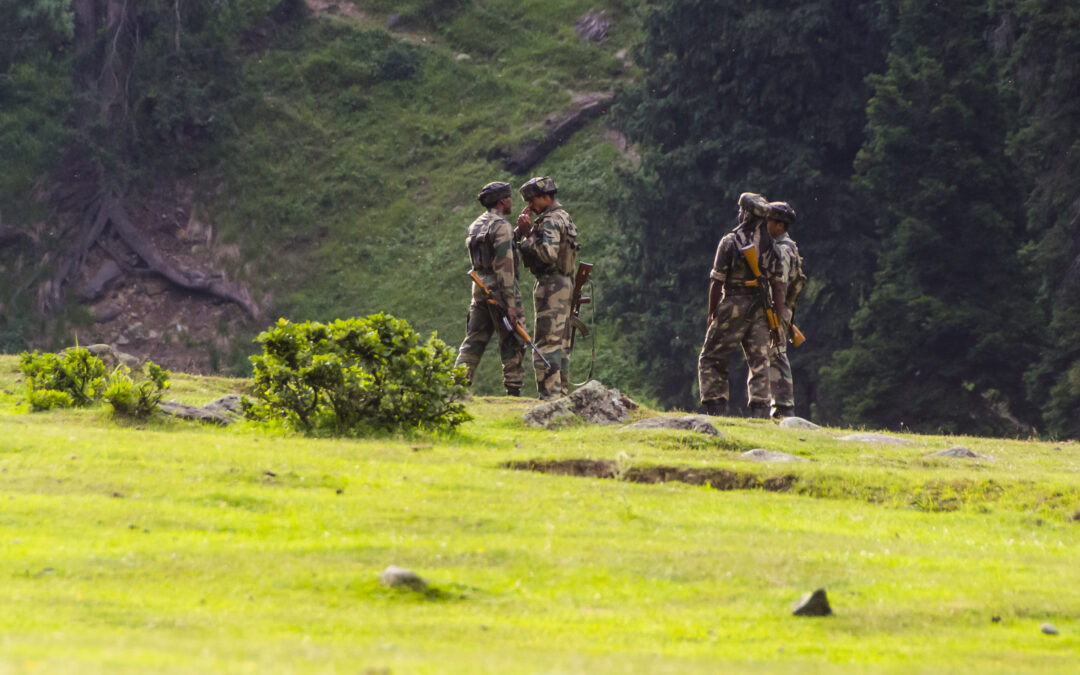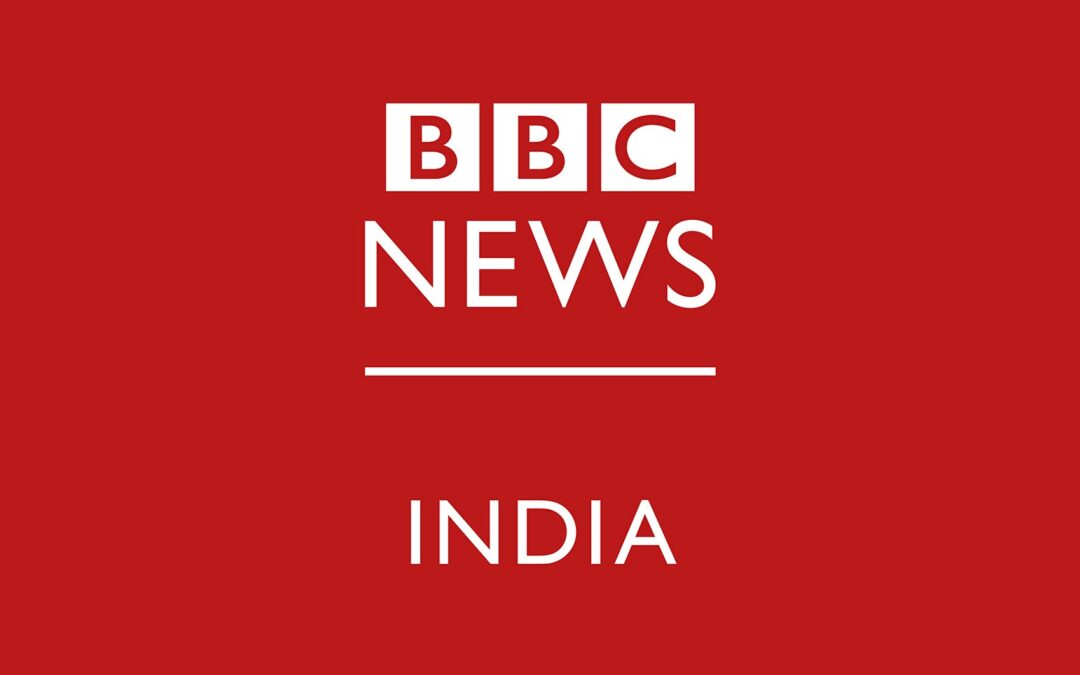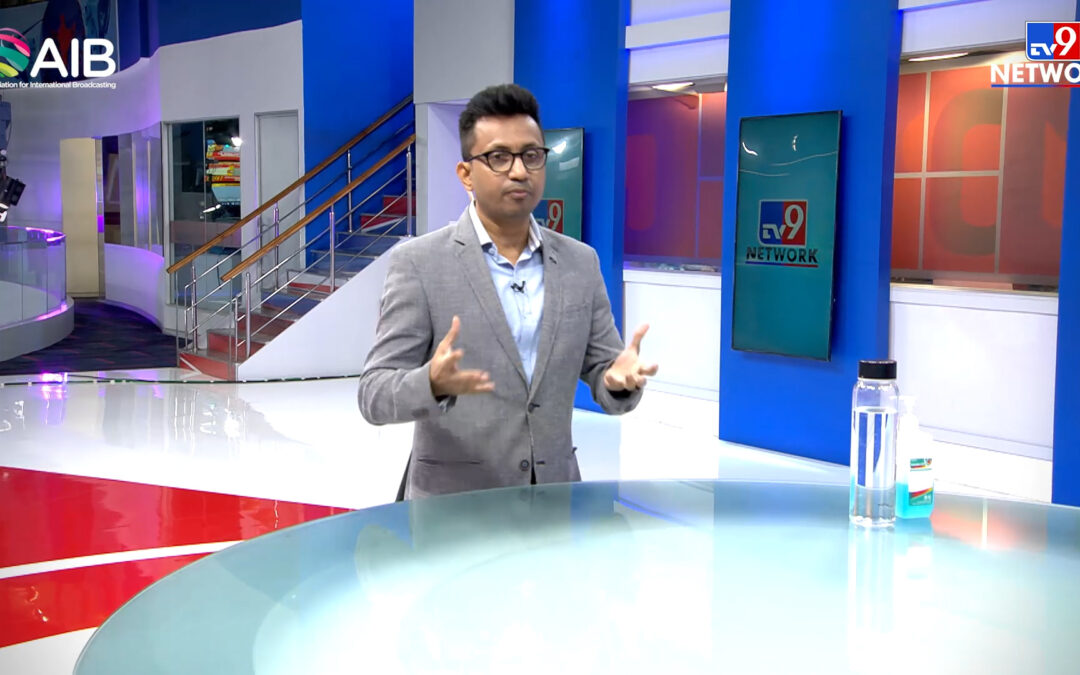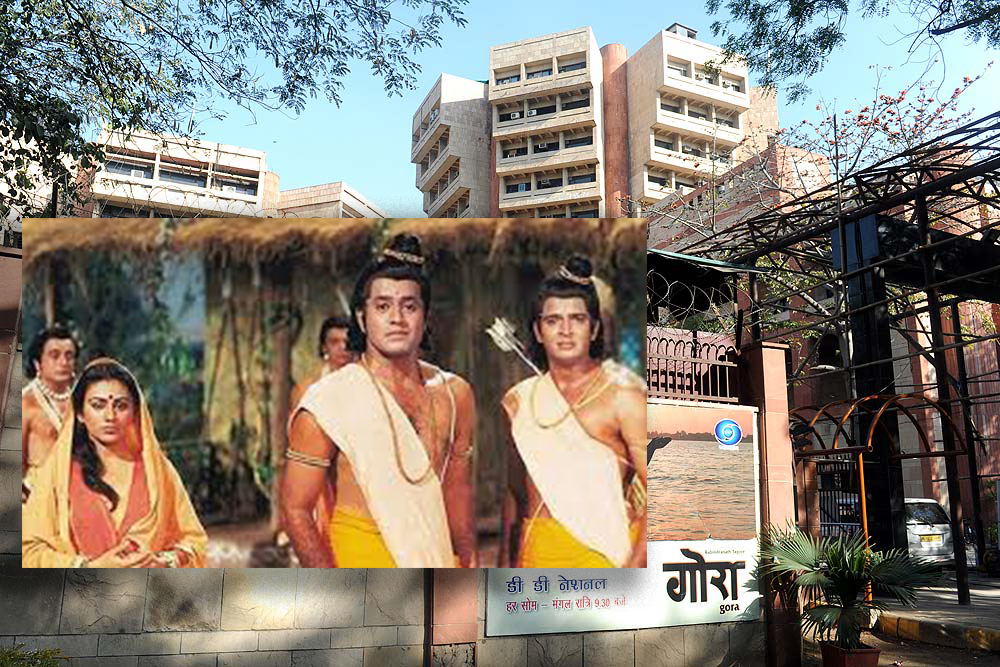
15 August 2019
BBC World Service has extended output on shortwave radio in Indian-administered Kashmir to provide reliable news and information.
 Director of the BBC World Service, Jamie Angus (pictured), said: “The provision of independent and trusted news in places of conflict and tension is one of the core purposes of the World Service. Given the shutdown of digital services and phone lines in the region, it’s right for us to try and increase the provision of news on our short wave radio services. Audiences in both India and Pakistan trust the BBC to speak with an independent voice, and we know that our reporting through several moments of crisis this year has been popular and valued by audiences who turn to us when tensions are highest.”
Director of the BBC World Service, Jamie Angus (pictured), said: “The provision of independent and trusted news in places of conflict and tension is one of the core purposes of the World Service. Given the shutdown of digital services and phone lines in the region, it’s right for us to try and increase the provision of news on our short wave radio services. Audiences in both India and Pakistan trust the BBC to speak with an independent voice, and we know that our reporting through several moments of crisis this year has been popular and valued by audiences who turn to us when tensions are highest.”
BBC News Hindi radio output (9515 and 11995kHz) will be extended by 30 minutes from Friday 16 August. The full one hour news programme will be on air from 19:30 to 20:30 local time.
On Monday 19 August, BBC News Urdu will launch a 15-minute daily programme, Neemroz. Broadcast at 12.30 local time on 15310kHz and 13650kHz, the programme will focus on news coming from Kashmir and the developments around the issue, and include global news roundup tailored for audiences in Kashmir.
BBC World Service English broadcasts (11795kHz, 9670kHz, 9580kHz, 7345kHz, 6040kHz) will be expanded, with the morning programming extended by an hour, ending at 08.30 local time; and the afternoon and evening programming starting an hour earlier, at 16.30 local time.
The shutdown has left people with very few options for accessing news at this time. However, news services from the BBC continue to be available in the region – through shortwave radio transmissions in English, Urdu, Hindi, Dari and Pashto. As well as providing an important source of news to the region, the South Asian language services have brought added depth to the BBC’s coverage of the Kashmir story.
The recent introduction of four new languages services for India – Gujarati, Marathi, Punjabi and Telugu, following additional investment from the UK Government – has enabled the BBC to offer a wider portfolio of languages and distribution methods to a region that is geographically diverse as well as politically tense. This year’s Global Audience Measure for the BBC showed that India is now the World Service’s largest market, with a weekly audience of 50m.

1 April 2015
This month, Zee, India’s biggest pay TV channel, celebrated its 20th birthday in the UK and Europe with a gala event in London, which featured appearances by the likes of Bollywood superstar Shah Rukh Khan. But the evening was not only a celebration of the past, but a look to the future. Zee used the evening as the platform to launch Zee’s new free-to-air channel &TV (AndTV).
During the evening, AIB had to opportunity for a one on one with one of the most influential players in Indian television, the MD and CEO of Zee, Punit Goenka.
Can you tell us a bit about your time at Zee?
My family owns the business. It’s a publicly listed business, but we are the majority shareholder, and I run this business on behalf of the family. I’ve been in this part of the business, for ten years.
I started off with running the Zee flagship channel for the network, then moved on to running all the channels for the group. And finally took over as the CEO and MD in 2008. And have been doing that ever since.

(l to r) Zee executives Rajesh Iyer, Punit Goenka, Neeraj Dhingra & Parul Goel at the press conference launching &TV
I’m sure you’ve seen a lot of changes in those ten years. Is it the same channel as it was it first began?
It’s very different from how it was. Zee has been in the UK and Europe for 20 years, and almost 23 years in India. What started from only a two-hour broadcast per day in the first years, is today 34 services running 24/7. We are no longer just a television company, we are also now moving all our content onto the internet space. We produce a lot of our own content now, rather than just acquiring it.
We now reach 179 countries, at last count, and we have gone away from just the Indian languages to include foreign languages too. We do content in Arabic, in Russian, in Bahasa for Indonesia and Malaysia, in Thai, and we just launched an English-language service in South Africa. So it’s no longer an Indian company. I think it has transformed into a global company. We have over 715 million viewers globally and counting.
How has becoming a global channel changed Zee’s strategy?
Now, because we have spread out in so many markets, the company has grown significantly in terms of size, in terms of number of people. And we have to do a lot more content than we used to do. We create about 600 hours of content on a weekly basis. That’s really a lot of content. It’s actually a factory, if you look at it from that perspective. And we do it in so many languages, apart from the Indian languages – we do it for six local languages in India also.
How has the digital shift affected Zee and how you produce content?
In India and for South Asian markets it’s still slow. It’s not moved as fast as we’ve seen here in the UK. But what we believe is that it’s the platform of delivery that’s changing, and while the delivery mechanism may change via the Internet, content companies will still have to exist and create quality content and make sure that quality content is available to viewers. And that’s what we are transforming ourselves to allow.

The &TV launch featured entertainment by the Shiamak Davar Dance Troupe
As the channel expands, are you still primarily targeting a South Asian audience?
In this market, we’ve not gone into local languages yet – English or any other language in European language, except for Russia. But we are studying some markets, like Germany, where we do think there is a market for getting into local language content. But we are still in the research phase.
Are you looking to tailor content for those different markets?
Absolutely. The content that goes into each of these markets is researched and tailored for that market. Storylines and films are selected based on how they will work in those markets. For example, in Arabic, our research showed that the local woman there really lacks romance in her life, so the romantic movies really work well in the kingdom of Saudi Arabia. That all comes from extensive research, and that’s how we’ve tailor-made the content for those markets.
What need is your newest channel, &TV, fulfilling?
Zee, being a brand that has been in existence for so long in India, has a certain loyal viewership base, and the best word to define them is they are the ‘traditionalists’. They are families – three generations of family living together. India is still largely composed of single-television homes. And the infrastructure is still not good enough for people to start consuming content on devices on a regular basis. So the kind of content we can do on Zee TV is very traditional. Whenever we tried to experiment with edgy content on Zee TV, our audience not responded.
So the need was felt that there’s a new audience base that’s been born in the last twenty years and they are looking for experimental new content. So we needed a new brand that is not Zee, and that’s how the ‘&’ franchise came about.
We first launched it with a movie channel, which showed a lot of edgy cinema. And once that was successful, we’ve moved into the entertainment sector as well. There is certainly a lot difference from what you see on Zee TV.
Was Zee’s more traditional programming in danger of losing young audiences?
Yes, younger audiences and the male audiences, who are not really attracted to the female soaps and drama. The need was felt for another brand to be created, where we can do a lot more contemporary and edgy content.

Bollywood star Shah Rukh Khan at the UK launch of &TV
What kind of content is there on the new channel?
We have everything from historicals to suggestive sex comedy to mafia-based family drama. We have game shows. And it’s all original content, produced in India. Some of the formats we’ve sourced from the overseas markets – like The Voice, Killer Karake and Who’s Asking?
What about news?
Given the regulatory scheme in India, this company cannot own news channels, because there is a restriction of 26% foreign direct investment in news. So we have a sister company that runs news businesses for us. That’s called Zee Media Corporation. Because we are majority owned by foreign direct investment, we are not legally allowed to do news.
How do you feel about the twentieth birthday celebration of Zee TV in the UK?
It’s a celebration for us. It’s a milestone that we’ve achieved in this market. But we feel that this market needs to grow further, so we are bringing the &TV franchise here to the UK.
While Zee TV will continue to play in the pay subscriber base game, &TV will go compete in the free-to-air market, with the rest of the competition, and we hope that it will be as successful as Zee TV has been to grow the market and grow our shares.





 Director of the BBC World Service, Jamie Angus (pictured), said: “The provision of independent and trusted news in places of conflict and tension is one of the core purposes of the World Service. Given the shutdown of digital services and phone lines in the region, it’s right for us to try and increase the provision of news on our short wave radio services. Audiences in both India and Pakistan trust the BBC to speak with an independent voice, and we know that our reporting through several moments of crisis this year has been popular and valued by audiences who turn to us when tensions are highest.”
Director of the BBC World Service, Jamie Angus (pictured), said: “The provision of independent and trusted news in places of conflict and tension is one of the core purposes of the World Service. Given the shutdown of digital services and phone lines in the region, it’s right for us to try and increase the provision of news on our short wave radio services. Audiences in both India and Pakistan trust the BBC to speak with an independent voice, and we know that our reporting through several moments of crisis this year has been popular and valued by audiences who turn to us when tensions are highest.”


